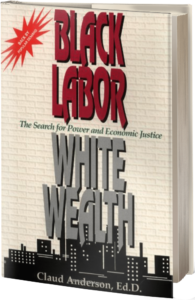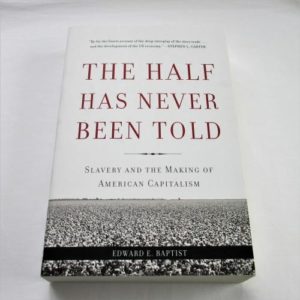
Summer brings longer days and vacations, and for many, more time to read. Usually a time for escapist books like thrillers, mysteries or juicy romances. We look for stories that are fun and entertaining. Slavery? Not interested.
A combination of revisionist history and ignorance of history have fueled attempts to roll back hard won civil, legal and economic gains. Who would have thought that the facts and horrors of slavery and Jim Crow would be debatable?
I’ve heard some older people say, “I lived it, I don’t want to read about it.” Some younger people aren’t interested in that “slavery stuff.”
All the while, there are calls for the good old days of slavery (when our families were strong is the argument), celebrities asserting that slavery was a choice, and the President demonstrating in a very public way that he doesn’t know jack about Frederick Douglas.
Why does this matter? Why can’t black people just “get over it?”
The negative impact of slavery did not end when the Emancipation Proclamation was signed in 1863, or when the Voting Rights Act was signed in 1965, or even when Barack Obama was elected President. Ignoring or sanitizing this country’s history of enslaving Africans and using her descendants does not lesson the negative impact.
Decisions on myriad things – from the design of Social Security to where interstate freeways were located – were based on race, with detrimental impact on communities of color.
I have compiled a brief list of books about slavery and its continuing impact on America. Some may say these books are too negative and put too much blame on white people.
Of course, we can’t paint all white people with the same brush. Less than six percent of whites owned slaves and many participated in the fight for civil rights. However, in an effort not to offend white America, history has been sanitized and rewritten.
There is a Bible verse that reads, “You can’t heal a wound by saying its not there.” We will never heal the wounds of slavery without knowing the truth.
The books in my list will inform some and remind others why we can’t just “get over it.” Between barbeques and family reunions, read a couple and encourage others to do the same.
Classics
 * “Black Labor, White Wealth, The Search for Power and Economic Justice” – Dr. Claud Anderson.
* “Black Labor, White Wealth, The Search for Power and Economic Justice” – Dr. Claud Anderson.
America’s economic dominance was built on free, then underpaid black labor. This book details the laws, mores and public policy that made this possible. Anderson writes in an easy to read format and offers practical solutions.
* “Miseducation of the Negro” – Dr. Carter G. Woodson
Published in 1933 and still painfully relevant today. Woodson, known as the founder of Black History Month, describes how lies and biased information were used to mold an inferior mindset in African Americans.
* “The Destruction of Black Civilization” – Chancellor Williams
A classic that reviews how religion, greed, geography and even the weather played a role in the shift from African kingdoms and empires to enslavement and colonization.
Why slavery still matters
 * “The Half Has Never Been Told: Slavery and the Making of American Capitalism” – Edward E. Baptist
* “The Half Has Never Been Told: Slavery and the Making of American Capitalism” – Edward E. Baptist
A Cornell University professor, Baptist shares research on how slavery built the south, benefitted northern industrial growth and its lingering economic effects.
* “Post Traumatic Slave Syndrome” – Joy Angela Degruy
Dr. Joy discusses how the past influences the present and how we can heal. She has consulted with a wide range of notables from the NBA to Oprah Winfrey.
* “Tears We Cannot Stop, A Sermon to White America” – Dr. Michael Eric Dyson
Discusses how white privilege and white fear are the root of the racial discord that permeates our society. A 2017 New York Times best seller.
Another View
 * “Between the World and Me” – Ta-Nehisi Coates
* “Between the World and Me” – Ta-Nehisi Coates
National Book Award winner in 2015 – written as a letter to the author’s teenage son about the reality of being black in the United States. Coates is author of the Black Panther comics.
* “Kindred” – Octavia Butler
In this time-travel novel, the main character is transported to pre-civil war Maryland, where she meets her ancestors and must make hard choices to survive. This story makes you appreciate what our ancestors endured, but also makes you wonder how you would have fared. It has been re-released in graphic novel (comic) format.
* “Should America Pay? Slavery and the Raging Debate on Reparations” – Raymond Winbush
A collection of essays that support both sides of the reparations debate.



